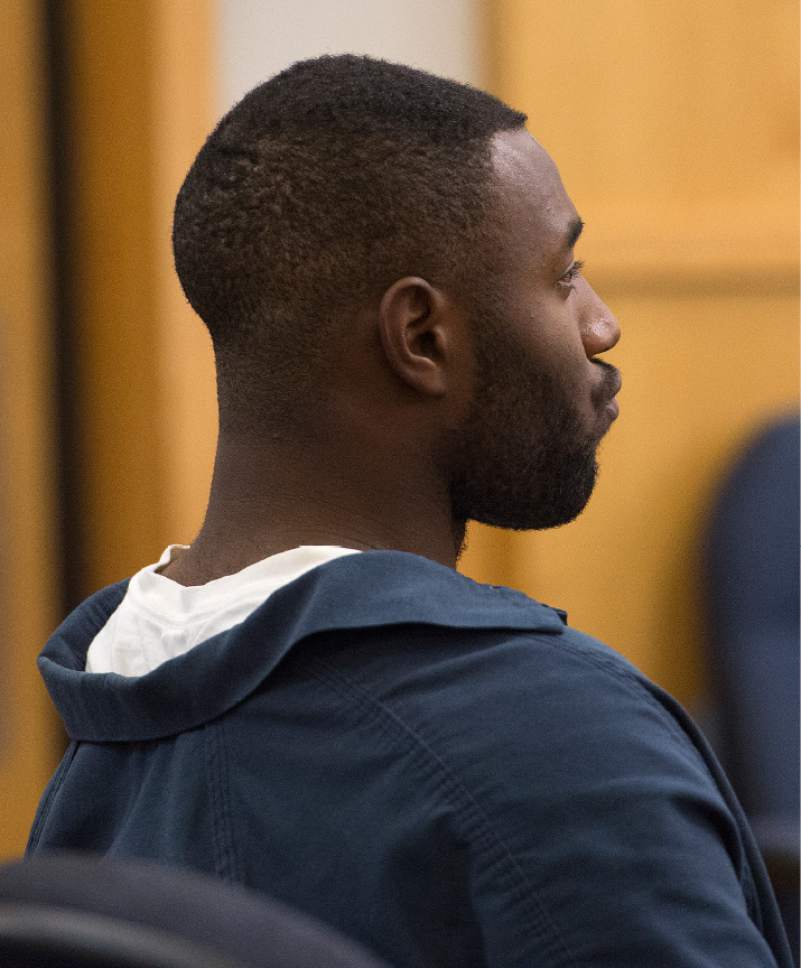This is an archived article that was published on sltrib.com in 2017, and information in the article may be outdated. It is provided only for personal research purposes and may not be reprinted.
The state Records Committee voted unanimously Thursday to make public a number of documents created by Utah State University while investigating the school's response to a series of sexual assaults allegedly perpetrated by former student Torrey Green.
The 2-inch stack of documents, generated during USU's internal investigation into the alleged assaults, was sought by The Salt Lake Tribune under the state's Government Records Access and Management Act (GRAMA).
On Thursday, the committee said some of the documents should be public, while others could be released after personal information such as names are redacted. Still others should remain completely private under federal student privacy laws, the committee said.
USU officials had argued during a January meeting that the records were shielded from release under a provision protecting communications between lawyers and their clients — and that keeping information from the investigation out of the public eye was the reason the school chose to use its own lawyer.
But the committee was "not persuaded" that the records — generated by a USU attorney — are protected by attorney-client privilege or as attorney work product, Committee Chairwoman Patricia Smith-Mansfield said Thursday, because they were created for a report, rather than for litigation, and the attorney expressed no legal opinion within the documents.
University spokesman Tim Vitale said school officials "still strongly believe" they were right to deny The Tribune access to the records and that "the attorney privilege is paramount in this case."
USU will "look closely" at all the details of the ruling as it considers whether or not to appeal the decision, he said.
"This is an important case, not only for us, but for other people, attorneys who are arguing attorney-client privilege," Vitale said.
Tribune reporter Alex Stuckey — who submitted the records request as part of the newspaper's ongoing investigation into the school's response to accusations of sexual violence — said she agreed with the committee's ruling.
"This information should be made public because Utah State is a public institution and needs to be held accountable for how these cases have been handled," she said.
In July, The Tribune reported that four women separately told Logan police in 2015 that they were sexually assaulted by Green, a USU football player. Three of the alleged victims were students and say they informed the school.
The alleged victims claim the school did not fully investigate the allegations or sanction Green. Under Title IX, a federal law that prohibits sex-based discrimination in education, schools are compelled to take immediate action regarding potential threats to student safety.
After The Tribune's stories about the alleged victims, USU launched an internal inquiry into how the school addressed the allegations against Green. And, in October, Green was charged in 1st District Court with six counts of rape, one count of forcible sex abuse and one count of aggravated kidnapping, stemming from alleged attacks on seven women — at least five of whom were USU students. Green had been cut from the Atlanta Falcons in August after the team learned of the allegations.
After finishing its inquiry, USU released recommendations in August for how it could improve its response to sexual assault.
The Tribune requested the inquiry and related records, but was told by the university that they were protected by federal student privacy laws and by attorney-client privilege, as the investigation was conducted by an attorney for the USU board of trustees.
At the January meeting, Stuckey said victims felt as if "the system failed them" after they "did everything right in reporting," and the records' release would likely explain what went wrong.
The committee will issue a formal order for the record's release within seven days, after which the university will have 30 days to appeal.
Twitter: @mnoblenews



